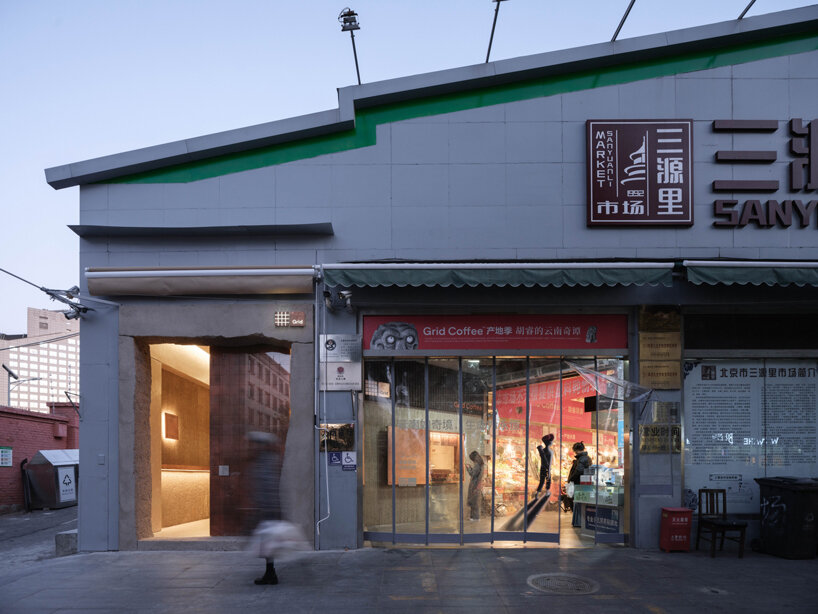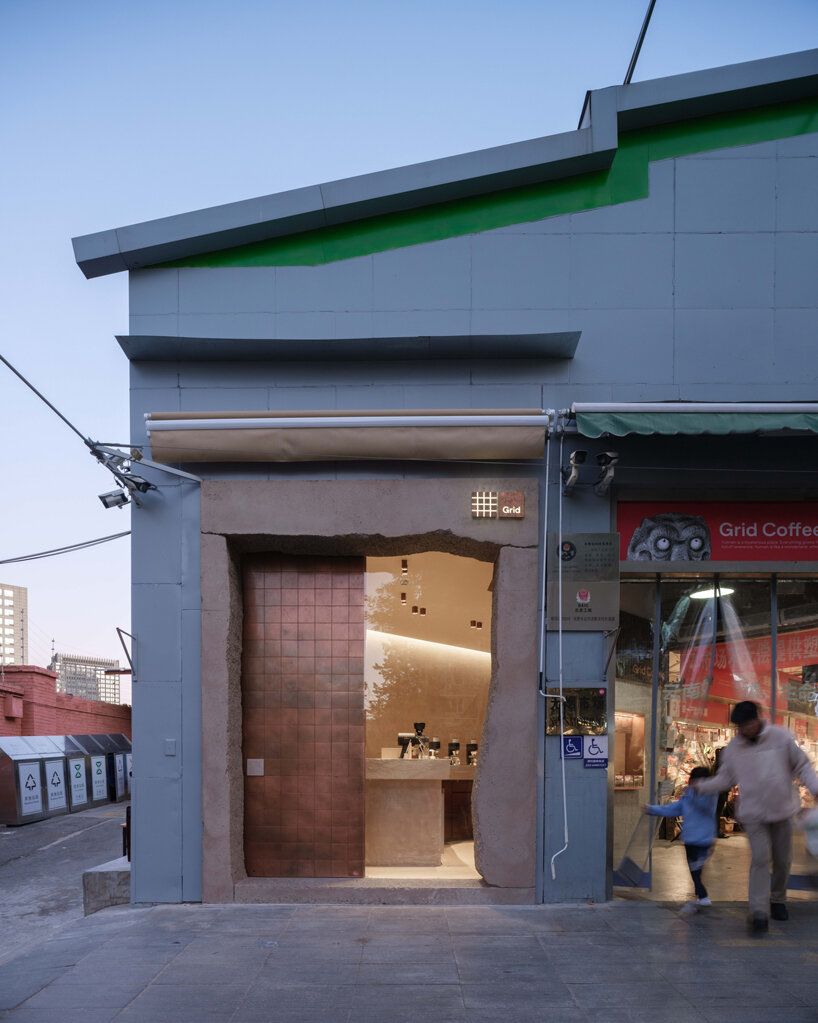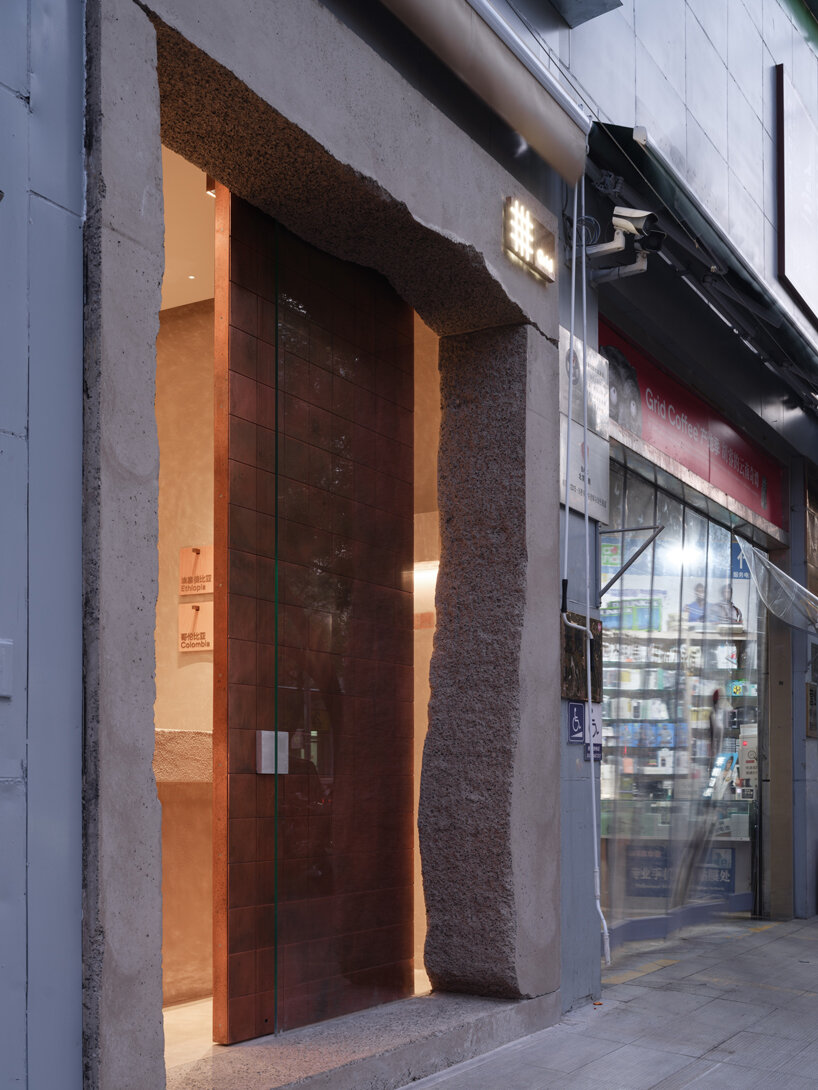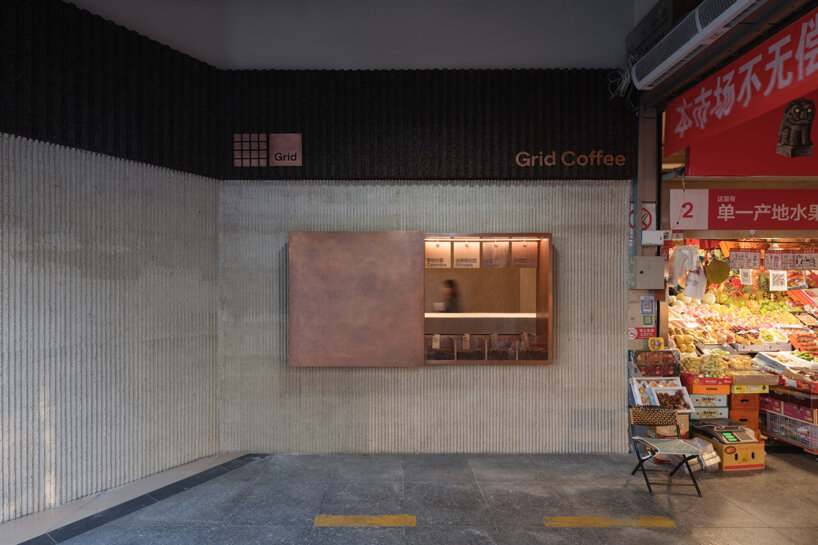tiny café by B.L.U.E. architecture studio pops out amidst traditional marketplace in beijing
B.L.U.E. Architecture Studio designs compact café in Beijing
Located within the lively SanYuanLi Food Market in Beijing, this café designed by B.L.U.E. Architecture Studio offers a modern twist amidst the traditional marketplace. Occupying a small 25 sqm space, it stands out at the northern entrance, blending modernity with the market’s historic charm. Inspired by the market’s vibrancy, the café’s design aims to harmonize past and present, revitalizing the community and connecting with the urban environment. ‘Our focus is on establishing both the ‘uniqueness’ and ‘everyday sensibility’ of the community space, seamlessly integrating the distinctive spatial ambiance into daily life,’ describes the team.

all images by Runzi Zhu
a harmonious dialogue with the Surroundings
B.L.U.E. Architecture Studio‘s design captures attention with its juxtaposition of concrete framing and a copper door. Despite its small footprint, this project aims to spark conversations about street life, community renewal, and urban connectivity, exploring innovative ways to enhance public spaces. The facade design maintains coherence with the market’s aesthetic, featuring a clever window mechanism. ‘When open, it showcases interaction and integrates communication between urban life and community scenes. When closed, the hand-hammered copper plate forms a contrast with the bustling market, resembling a piece of art,’ shares the team.

The unique shape of the concrete framing mirrors the market’s vibe, while the copper door adds visual interest without overwhelming the space. ‘With this design, our objective is to initiate a discourse on street, community revitalization, and urban connections, aiming to explore innovative approaches to communal public life’. Inside, the design fosters the ritual of enjoying coffee on the go, with the sculptural bar efficiently dividing the space. The windows blur the lines between the café and the market, encouraging interaction. Material choices, from oxidized copper to hand-cast ribbed facades and elm wood surfaces, further integrate the café with its surroundings.

the handcrafted copper door, in contrast with the rough and weighty concrete

windows on the inner façade foster interaction among various stalls and blur the boundaries between the café and the market









